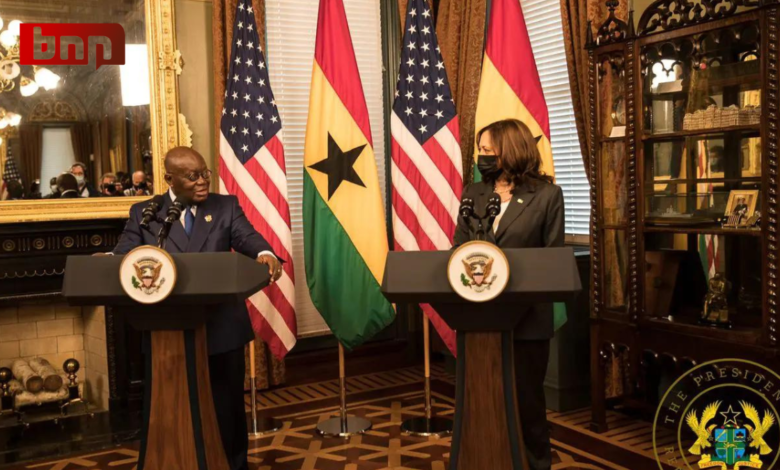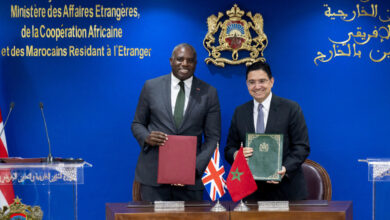U.S VP Kamala Harris Visits Ghana, Will Meet Youths in Creative Industry

US Vice President Kamala Harris will visit Ghana this weekend as part of a three-country tour, which also sees her stop in Tanzania and Zambia.
She is departing Washington on Saturday evening and arrives in Ghana on Sunday afternoon.
The Vice President is visiting these three countries where the governments are investing in their democracies specifically at a time there is a global democratic recession.
On Monday, the Vice President will have a bilateral meeting with President Akufo-Addo of Ghana to discuss developing bilateral relations, particularly in the security and economic spheres. They are expected to cover food security on the African continent, sustainable economic growth, and the war in Ukraine.
She will also visit a local recording studio in Accra and meet with young people in the creative industry.
On Tuesday, the Vice President Harris will deliver a major speech to an audience of young people. She will then visit the Cape Coast slave castle, which will include a tour and a set of remarks there. She will, at the Cape Coast Castle, speak about the brutality of slavery and the African Diaspora.
Vice President Harris’ trip is part of a larger US effort to re-engage and build closer ties with African countries. Competitors Russia and China have invested more in the region, increasing the geopolitical influence and access to key raw materials and developing markets.
Washington now sees itself as playing catchup and has sent delegations to many countries to increase trade and security partnerships to counter Moscow and Beijing.
Expect Vice President Harris to commit to increased US investment in cleantech development and digital economy to boost public and private sector development.
She will also likely push back on Russian efforts to blame the war in Ukraine, which has threatened Africa with food shortages, on the US and NATO. However, she is unlikely to stress competition with China in the region, as African countries are particularly resistant to new Cold War narratives.





